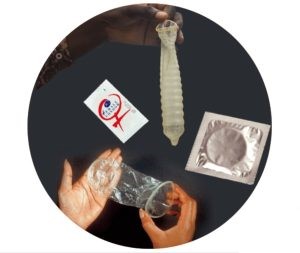A new report from the World Health Organisation revealed that condom use among sexually-active adolescents has declined significantly since 2014, with rates of unprotected sex worryingly high.
WHO said this is putting young people at significant risk of sexually-transmitted infections.
In a statement released on Thursday, the WHO’s Regional Office for Europe highlighted a troubling trend revealed by a new report, which showed a decrease in condom use among young people.
“Overall, the report highlights that a substantial proportion of sexually active 15-year-olds are engaging in unprotected sexual intercourse, which WHO warns can have far-reaching consequences for young people, including unintended pregnancies, unsafe abortions and an increased risk of contracting STIs. The high prevalence of unprotected sex indicates significant gaps in age-appropriate comprehensive sexuality education, including sexual health education, and access to contraceptive methods.
“Compared to 2014 levels, the new data show a significant decline in the number of adolescents reporting condom use during last sexual intercourse. From the data, it is clear that the decrease in condom use is pervasive, spanning multiple countries and regions, with some experiencing more dramatic reductions than others.
“The report underscores the urgent need for targeted interventions to address these concerning trends and promote safer sexual practices among young people within the wider context of equipping them with the foundation they need for optimal health and well-being,” WHO noted.
The findings, based on the Health Behaviour in School-aged Children study, surveyed over 242,000 15-year-olds across 42 countries in Europe, Central Asia, and Canada between 2014 and 2022.
The data indicates a widespread reduction in condom use, with the proportion of sexually active boys using a condom during their last intercourse dropping from 70 per cent to 61 per cent, and from 63 per cent to 57 per cent among girls during the same period.
Furthermore, nearly a third of adolescents reported using neither a condom nor the contraceptive pill during their last intercourse, with socioeconomic disparities also playing a role.
Adolescents from low-income families were more likely to report not using protection compared to those from more affluent backgrounds.
While the report’s findings are dismaying, they are not surprising,” noted Dr Hans Henri P. Kluge, WHO Regional Director for Europe. “Age-appropriate comprehensive sexuality education remains neglected in many countries, and where it is available, it has increasingly come under attack in recent years on the false premise that it encourages sexual behaviour, when the truth is that equipping young persons with the right knowledge at the right time leads to optimal health outcomes linked to responsible behaviour and choices. We are reaping the bitter fruit of these reactionary efforts, with worse to come, unless governments, health authorities, the education sector and other essential stakeholders truly recognise the root causes of the current situation and take steps to rectify it.
“We need immediate and sustained action, underpinned by data and evidence, to halt this cascade of negative outcomes, including the likelihood of higher STI rates, increased health-care costs, and – not least – disrupted education and career paths for young persons who do not receive the timely information and support they need.”


